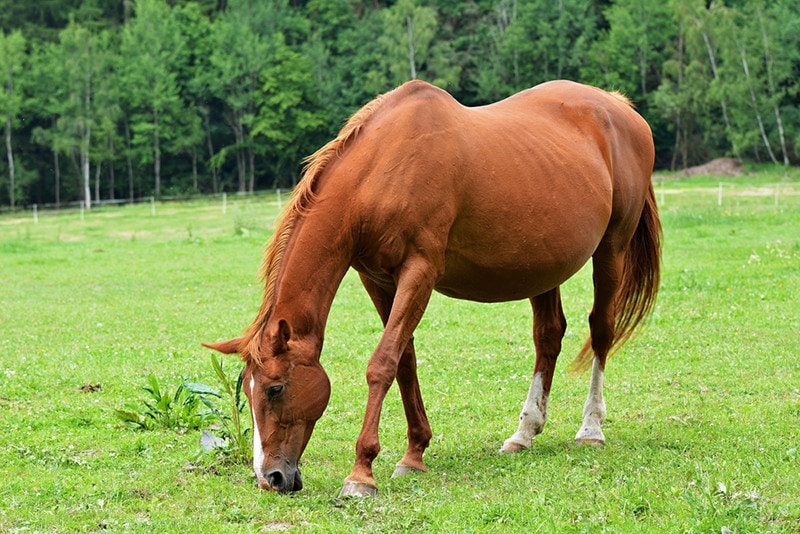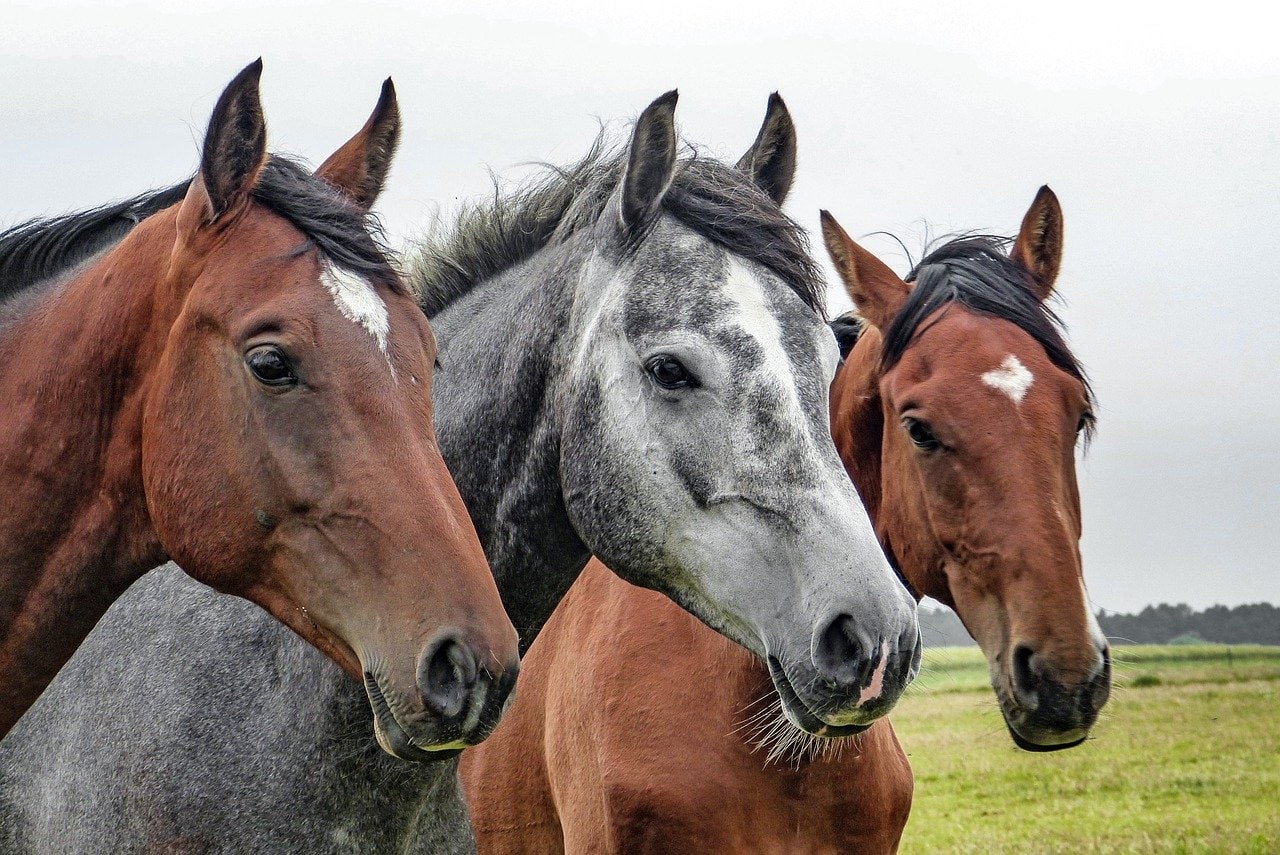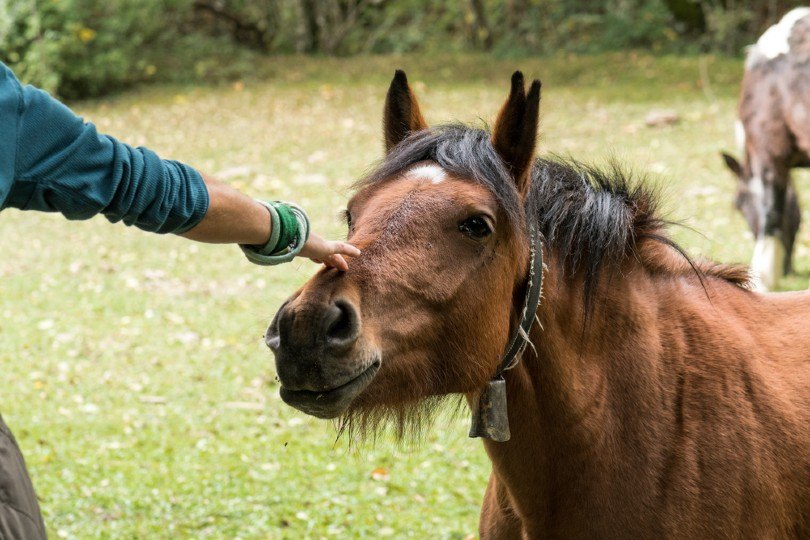
There are plenty of horse feed options and concentrates on the market to enhance your equine’s diet. Depending on the purpose of your horses, your pets will need a diet to support their lifestyle.
We found several fantastic options to mention, each with its benefits and downfalls, and you might need a combination of these feeds to achieve optimal nutrition goals. Here are the five horse feeds and concentrates without further ado.
The 5 Types of Horse Feeds and Concentrates
1. Complete Feeds
Complete feeds are helpful for horses that can no longer graze. These feeds have all the components necessary to create a well-balanced diet for your horse. While your horses still require fresh nutrients, many seniors and horses with dietary or dental issues may eat complete feeds rather than graze.
Also, it can be hard for certain horses with disabilities to spend long days in the pasture. Complete feeds offer well-rounded nutrition while they heal—or for the remainder of their lifetime.
2. Concentrates
Healthy horses do not need any supplements or concentrates in their diet. Natural grazing takes care of all the possible nutrients they could be lacking in many cases.
However, concentrates are made to provide a calorie-dense booster for horses who need it. Some of these horses include pregnant mares and racing horses that burn excess calories.
Grains
Grains are only a first-round pick for horse nutrition if it’s necessary. However, in addition to hay, grains might be added to a horse’s diet to increase the calories. Due to a lack of proper roughage, many horses don’t achieve the right nutrition by grazing alone.
While you can offer whole grains to horses, most store-bought mixes are processed for better digestibility. Common grains for horses include barley, oat, wheat, corn, and milo. Each one has slightly different benefits to reach the target health.
Grain provides 1.5 times more energy than hay per pound, so overuse of it can lead to digestive issues or system overload. Stomach ulcers and colic can result in diets too high in grain, so keep rations less than 25%.
Grains + Pellets
Grains and pellets offer a combination diet for horses. Pellets are more cost-effective than grains and can enhance your horse’s diet plan. Pellet ingredients are cooked to be more digestible, and when combined with grains, they can provide a nutritious meal for your horse.
Extruded Feeds
Extruded feeds can work for a variety of reasons. First, this feed has less dust for horses with lung sensitivities. But the primary purpose of extruded feeds is to encourage voracious eaters to consume food slower.
If they are forced to eat slower, it decreases the risk of potentially serious problems like choking. Plus, it increases saliva production to buffer the stomach’s acidity.
3. Ration Balancers
Ration balancers were designed to be a fantastic mid-point between hay and grain by avoiding concentrates with too much of certain nutrients. These balancers provide essential nutrients to certain horses that they might miss in their daily diet.
Some horses are sensitive to feeds that contain a higher amount of sugar. If your horse needs a dose of protein without the added sugars, you can try a ration balancer in their daily diet. It contains a high nutritional density without the extra calories that grain provides.
4. Vitamin & Mineral Supplements
Supplements are often helpful to ensure that your horse gets the appropriate vitamins and nutrients. You can buy supplements with different levels of vitamins, minerals, and other target health ingredients.
Mineral Salt Blocks
Horses need plain white salt blocks to add minerals to their diet. These salt blocks are palatable and safe for horses and cattle. They have just the right trace minerals to balance a horse’s diet, permitting they are foraging only.
5. Roughage
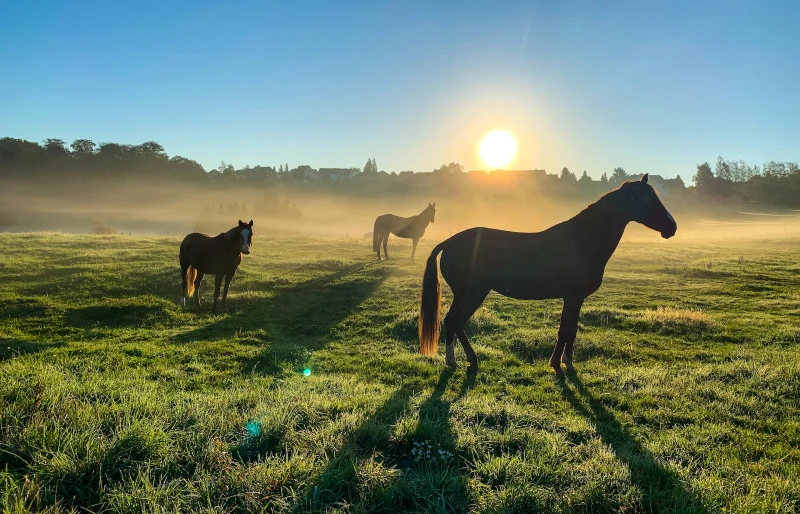
Roughage is the most critical component in your horse’s diet. They should spend most of their day grazing to receive a vast medley of various grasses, shrubs, and flowers.
Horses’ bodies are genetically engineered to break down these fibrous greens. On average, horses consume 15 to 20 pounds of roughage per day.
Pasture
Pasture grazing is the most popular form of the horse diet. Nature has everything your horse needs to live a healthy life. In some situations, pasture grazing is not an option. If that’s the case, there are other methods to give your horse complete and balanced nutrition
Hay
Common hay varieties for horses include alfalfa, timothy, legume, mixed, oat, brome, orchard grass, and bluegrass hay. The type of hay you choose will depend on your horse’s overall needs, and you can alternate between them to mix things up.
The type of hay depends greatly on your horse’s body structure and dietary needs. For example, a horse prone to weight gain might work better with nutrient-dense hay. On the other hand, a lean horse that burns many calories a day may benefit most from a protein and carbohydrate-dense hay.
Round bales of hay may be more cost-friendly, but you can potentially encounter a bacterium that produces botulinum toxin, which can lead to a life-threatening disease, botulism. Bales of hay can trap moisture, which creates a perfect environment for this bacteria to form. If you notice any mold in your horse’s hay bale, discard it immediately.

Pellets & Cubes
You can also buy hay and other fibrous materials in pellet form. Pellets are typically comprised of hay and alfalfa. Eating the components in this form may help horses with unhealthy teeth.
When fed whole, these cubes can cause an obstruction. It’s best to soak the cubes thoroughly in water before offering them. You can also break up the pieces with your hands to make them more palatable for your horses.
Many folks like pelleted or cubed hay instead of fresh hay because it is more consistent with little change in quality between bags. With hay cuttings, the consistency, quality, and overall satisfaction might change.
Pellets and cubes might also be used for weight gain or maintenance. These chopped hay pieces can be eaten considerably faster than the grass hay variety.
Beet Pulp
Beet pulp is processed and served to horses because it is low in carbohydrates and high in fiber. It digests easier than hay. This feed is typically for horses who require a forage or fiber replacement in their diet.
Most folks offer beet pulp to seniors or horses with digestive or dental issues. It can also help underweight horses achieve a healthy weight.

Make Sure Your Horses Get a Balanced Diet
A balanced diet is one of the most important aspects of horse care. Some horses, like racing horses, for example, forage much less or not at all. It might take some time to develop a meal plan for your horse.
However, pasture-raised horses generally have access to foliage daily. Depending on where you live, your horse’s dietary needs, and the immediate environment, this can influence adding other elements to their diet. Because a horse’s diet can be so tricky, it’s best to work with a veterinarian to determine precisely what your pal needs.
Risks of Improper Nutrition in Horses
Poor nutrition can cause innumerable issues for your horses, including poor performance, excess weight gain or loss, and increased risk of illness. To ensure the quality of life for your horses, it’s best to feed each one with the nutrients its body requires.
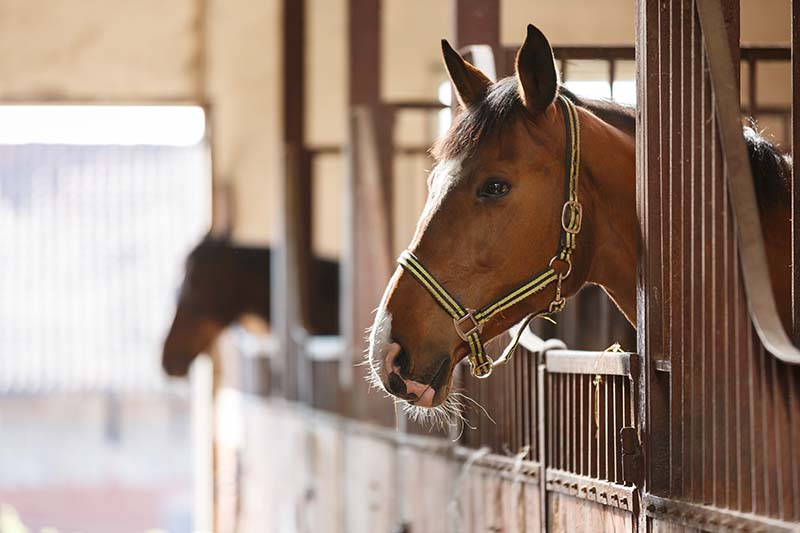
Conclusion
So now you know the broad list of supplements and concentrates you can offer your horse in addition to the regular diet. Remember that every alternate food source besides roughage needs to be closely monitored and portioned. Only some of these will be necessary for certain horses, so it’s best to work with your veterinarian to determine what your horses need.
Featured Image Credit: michaeljung, Shutterstock





